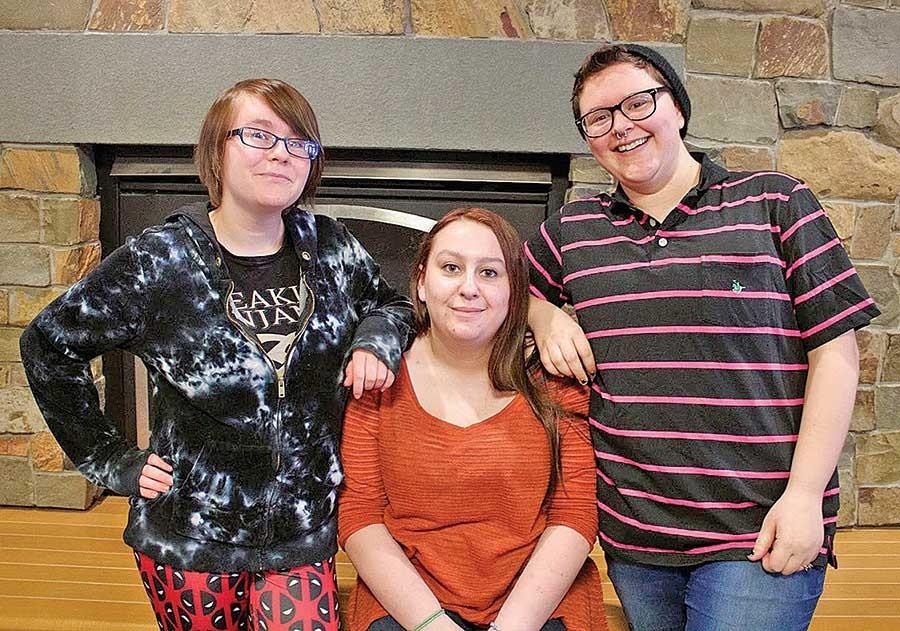Johnson designated “LGBTQ+ friendly”
Pride Alliance officers Chantel Haslam (Vice President) Emily Mixon (Secretary) Randa Morris (President)
Recently, after months of review and deliberation, Johnson State College was designated LGBTQ friendly, joining about 200 other colleges across the country and two others in Vermont.
“The school has received external recognition for something that has long been recognized internally,” said David Bergh, dean of student life and college relations. “And that is we’re a campus that is inclusive and welcoming and supportive of folks from all kinds of various backgrounds, but particularly the LGBTQ+ community.”
This designation comes from the organization Campus Pride, which graded the college in a number of areas including but not limited to “support and institutional commitment, academic life, student life, housing and residence life, policy inclusion, campus safety, counseling and health, and recruitment and retention,” said Pride Alliance Vice President Chantel Haslam.
JSC scored 3.5 stars out of a possible 5, which Bergh sees as quite good, but also as informing the school of areas that could use improvement. “It’s the kind of work where you’re never done,” said Bergh. “There’s always going to be things we can be…creating an inclusive community is work that we all have to stay on and be attentive to.”
JSC senior Chris Austin echoes this sentiment: “I think that the 3.5 star rating means that we still have more ways to make our campus a bit more open or inclusive for LGBTQ+ students. It’s already pretty open and inclusive, but there are always way to do better.”
This designation also means different things to other people. To Pride Alliance President Randa Morris, this designation means that “our campus is moving forward with LGBTQ safety and community. It means a lot to me personally because I’ve been to schools that do not have a safe and open LGBTQ community and so it’s refreshing to be here.”
“This designation is phenomenal,” said Haslam. “It really solidifies the importance of hard work and progress.”
Campus Pride determines eligibility based on a variety of metrics, according to Bergh. “They are really seen as a foremost organization in terms of having established benchmarks by which to measure how LGBTQ friendly a campus is in a number of different categories,” he said.
Questioning for this review extended all the way from student health insurance, to policies in Residence Life, to campus-based organization, and covered everything in between.
The review has allowed the school to determine further efforts towards inclusion that could be made. “That’s the way I want to use the tool going forward,” said Bergh.
Among areas needing more work, according to Morris, is enhanced accessibility. “I feel like there isn’t an easily found resource. For instance the women’s center, the counseling center, and the pride alliance meetings are great resources, but are not always easily accessible for students,” said Morris.
For Austin, broadening education on proper terminology and terms of address is also an area that needs addressing. “There are some on campus — students and faculty — who do not quite understand what it means to be things like transgender, pansexual, gender nonbinary, and things of that sort,” said Austin. “I would say what we are trying to do is educate people as best we can, and in a way that most can comprehend, so that there is much less confusion.”
Bergh emphasized that the LGBTQ friendly designation affirms what the college aspires to be. “We’re committed to being inclusive in the most broad sense possible,” said Bergh. “We want to make sure that we’re giving as much attention to students from backgrounds of all types, and particularly for traditionally underrepresented students.”




